Another programming note before we get into the post: The
Bay Area Carnivorous Plant Society is having its Fall Meeting on
Saturday the 24th at the
Lake Merritt Garden Center, 666 Bellevue Ave. in Oakland from
12:00 to 4:00. The topic will be...pygmy sundews! We're heading into gemmae season, so we've all gotta be prepared. There will be lots of photos, a guide to building an aspirator for harvesting gemmae, and more. California Carnivores will be there selling plants, and everyone's gonna have a good time. If you're in the area it would be awesome if you could make it through. Okay, on to the post.
I've been checking in on my pygmies more lately so I can see when gemmae start forming. There are several pots I need to re-sow this year to keep the collection looking tidy. Consider
Drosera pygmaea and
Drosera roseana here.
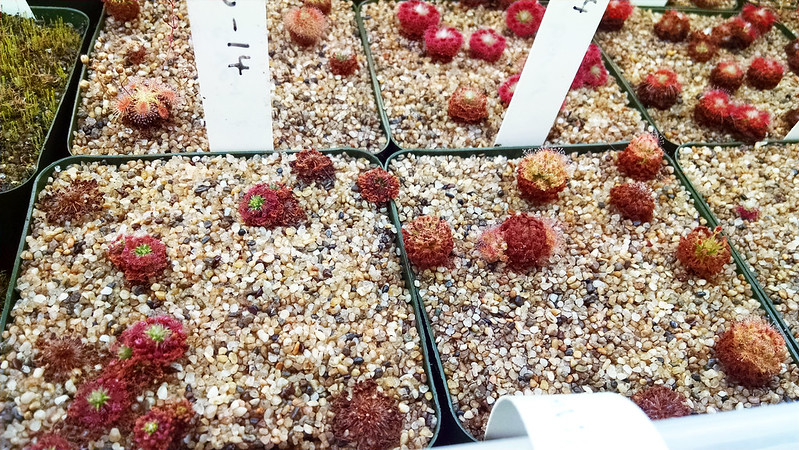 |
| Looking a bit tired there guys! |
The
D. roseana on the right were fed recently. I think they just burned a bit too brightly – these were the plants that produced gemmae
only 12 weeks after
being gemmae. No wonder they look a bit exhausted. As for
D. pygmaea, I've always had trouble with this species. A number of people describe it as being one of the easiest pygmies, but I've just never been able to keep them happy. Who knows.
Drosera patens is showing a bit of a stem/skirt of dead leaves.
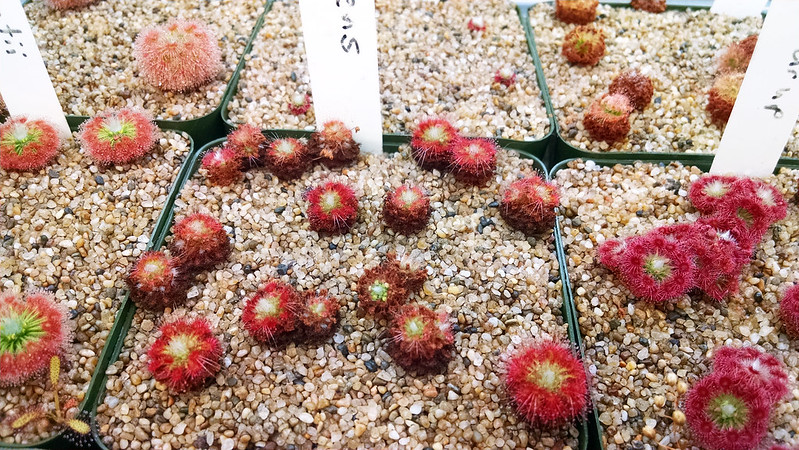 |
| They're burning out. |
The life cycle of pygmies is so short.
This picture from my Instagram is was taken back in mid-May (follow me on Instagram for more plant pictures!). They looked so happy then.
D. patens is part of a group of closely-related pygmies including
Drosera nitidula and
Drosera allantostigma, so I really like them when they're growing well.
My supposedly orange-flowered
Drosera pulchella has also shrunk back a bit.
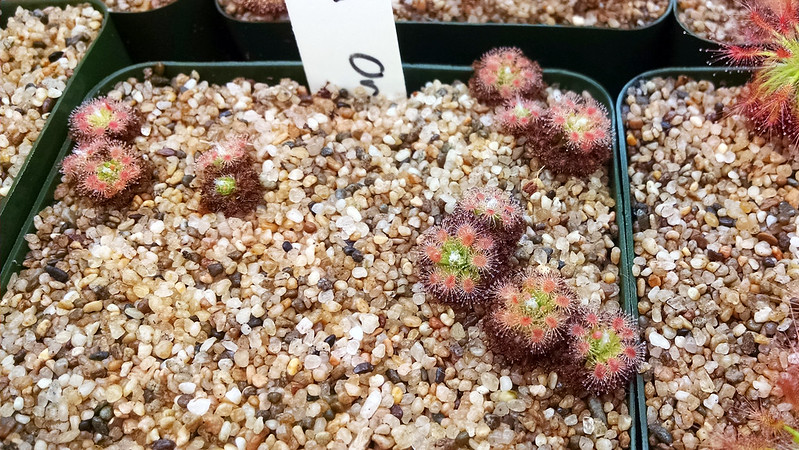 |
| It would be cool to see the orange flowers. |
I say "supposedly" because I've never had any flowers from these guys. I don't seem to flower pygmies very readily. Not sure why! Plants are weird. Maybe my conditions are too consistent from them. After all, they're native to a much more extreme climate than my garage (southwest Australia).
My good old
Drosera scorpioides are glad to have been recently fed.
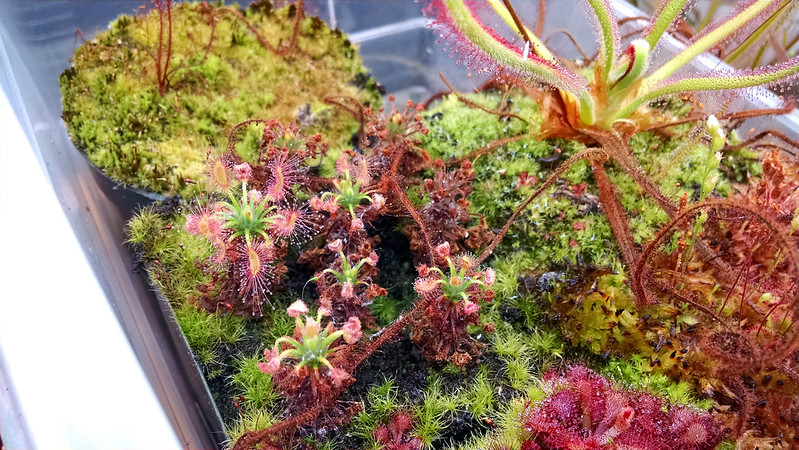 |
| Ah, memories. My first pygmies. |
I definitely need to re-sow this species this year. Not sure how much longer they'll hold out. Also I've heard from multiple people that their
D. scorpioides tend to conk out suddenly sometime during year three. Also I think there's a slug or snail in that tray somewhere. I hate slugs.
Moving on to plants that are doing quite well, check out this
Drosera occidentalis ssp.
microscapa. It...exists!
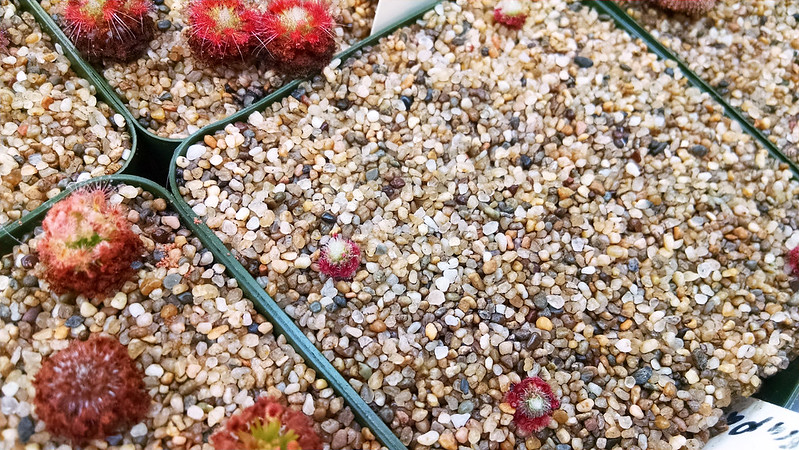 |
| These are so hilariously tiny. |
Back in February they were
nowhere to be found. I'd figured that sowing on the sand had been a bit too extreme for the tiny gemmae – being so small they have less stored energy and moisture, so they wouldn't have time to grow roots into the soil. Guess I was wrong! It still took like 6 months before I could tell they were there though. What a silly plant.
I'm very pleased with how
Drosera silvicola and
Drosera barbigera are doing.
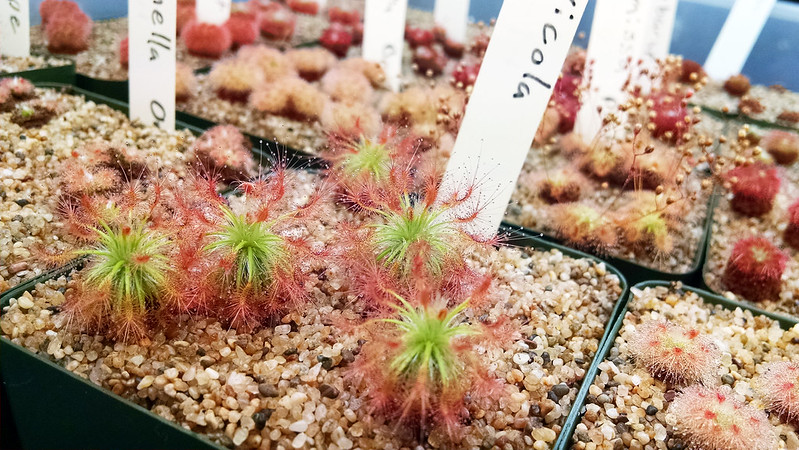 |
| These have really filled out nicely. |
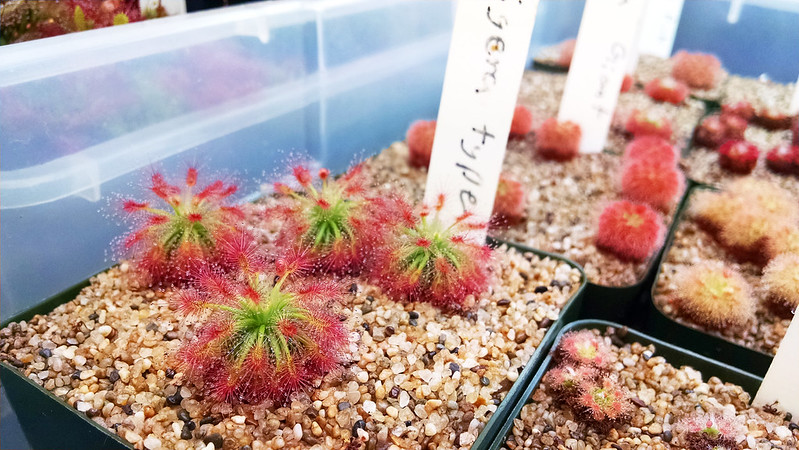 |
| Four plants per pot seems perfect. |
These both seem to have some affinity with
D. scorpioides in terms of growth habit, but I like how the stem is less pronounced, leading to this nice dome-like set of traps. Quite handsome plants!
I've gotta post about
Drosera ×Dork's Pink. Just look at it.
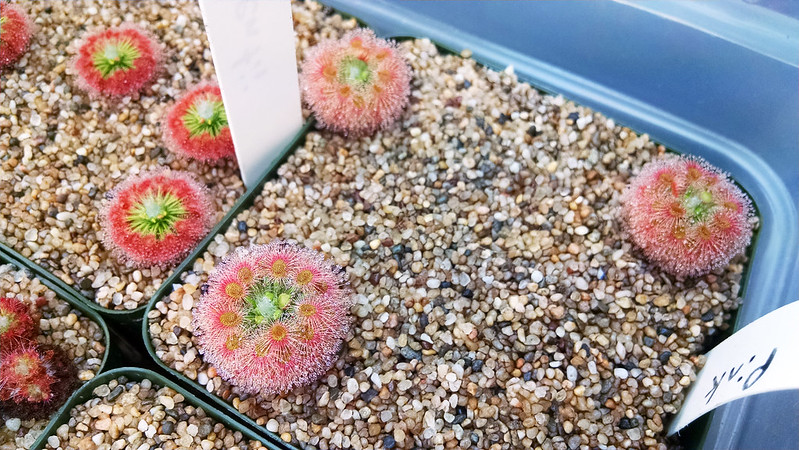 |
| I hope I get a lot of gemmae from these. |
D. ×Dork's Pink is
D. lasiantha ×
callistos, an absolutely fabulous man-made hybrid that was formally described in the March 2015 issue of the
Carnivorous Plant Newsletter (join the ICPS to download it). I just love the density of the traps and the truly wonderful glowing pink color. It's also quite a large pygmy, so it's very striking.
Finally,
Drosera sargentii.
Drosera Gemmae is actually calling it
Drosera parvula ssp.
sargentii now. Whatever you call it, I think it's my new favorite pygmy (sorry
D. allantostigma).
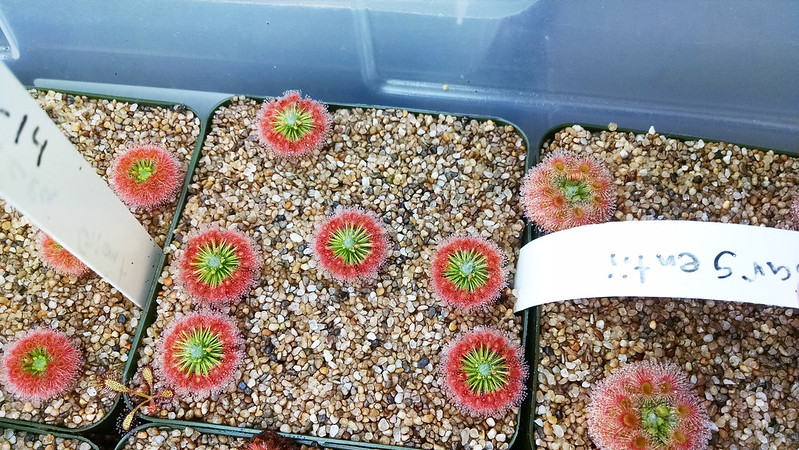 |
| I could stare at these all day. |
Just LOOK at those pygmies. Like perfect little bullseyes. Wonderfully distinct bands of color, almost perfectly circular. I can't even handle how cool this plant is.
If you like sundews you've gotta be growing pygmies. I'm pretty sure they're the coolest.

















